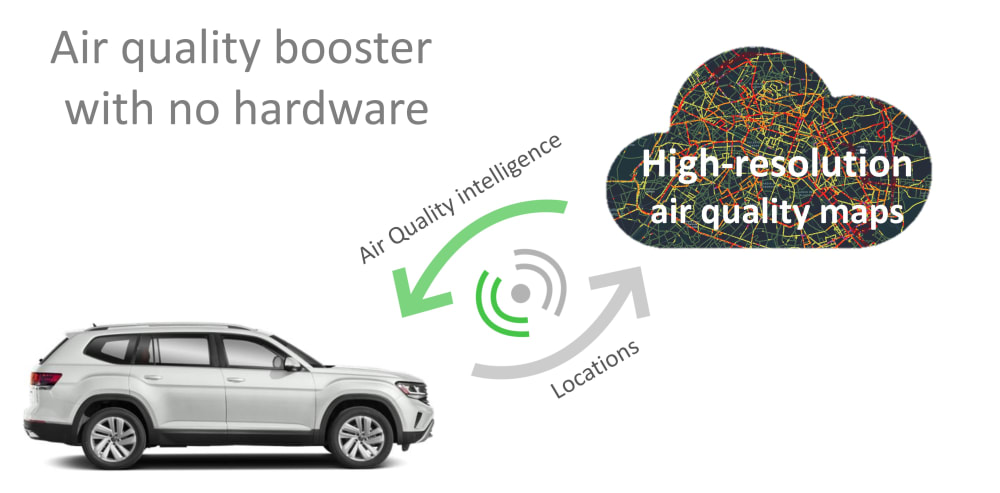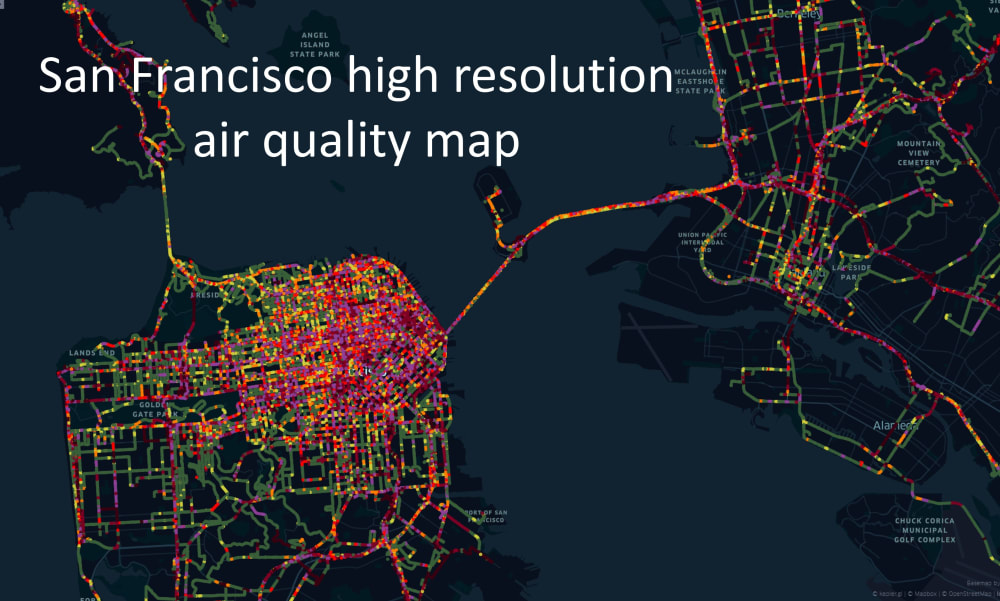
Air pollution is the number one cause of death in the world. Traffic pollution causes tens of thousands of deaths each year in the USA alone. Most people get their highest exposure in traffic, inside their car. Car manufacturers have been working on the subject for years using sensors, active air intake control, filters and other means. These methods are useful but expensive and have been implemented only on high-end cars.
The product we propose, Airlib, improves cabin air quality for ANY CAR and therefore brings important benefits in terms of comfort, health, and healthcare costs.
It is a software solution that makes use of air quality data from existing sensors on-board cars in traffic, to build urban air quality maps with unprecedented resolution in both space and time.
Here is how it works:
- Air quality data is collected from a small subset of cars in traffic: ~100 cars for 1m inhabitants.
- The Airlib platform processes this data and creates air quality maps with a grain of 50 meters.
- Client cars in traffic send their locations to the Airlib platform every few seconds and get a quasi-immediate response including air quality information ahead of their path and a recommendation on the optimum air intake flap position to keep pollution out of the cabin.
- The average in-cabin pollution is reduced by 20% to 70% depending on traffic conditions. Airlib does better than an on-board sensor (https://doi.org/10.4271/2023-01-0139)
- The data the client car receives also enables other features such as: cleaner routes suggestions, personal exposure tracking, exposure index versus other users, cabin air filter load indicator.
With Airlib, better cabin air quality can be achieved for ALL connected cars instead of being reserved to the top 10%.
Cabin air management is even more critical on EVs because of the stronger need to save on thermal energy. OEMs tend to keep the air intake flap closed more often on these vehicles for that purpose. The Airlib method is therefore even more useful on EVs because keeping the flap closed at all times is not an option due to the build-up of CO2. With Airlib, the flap can be opened and closed at the right times to avoid high pollution intake and sheltering.
Airlib’s software is operational and can be scaled up without major redesign. Several large cities have been mapped with Airlib’s data engine at a cost of 1 cent per year per inhabitant. The cost of service per client-car is estimated to be around 25 cents per year, while the new features could be invoiced to the end customer at $3 to $10 per year. The current hardware costs of other air quality methods range from $10 to $100.
Airlib is currently offering its solution to several major OEMs and their data subsidiaries. In addition to the innovative new functions and user benefits, they see Airlib as a way to monetize their data. A single partnership would unleash enough data collection to map one or several continents.
Video
-
Awards
-
 2024 Top 100 Entries
2024 Top 100 Entries
Like this entry?
-
About the Entrant
- Name:Herve Borrel
- Type of entry:individual









